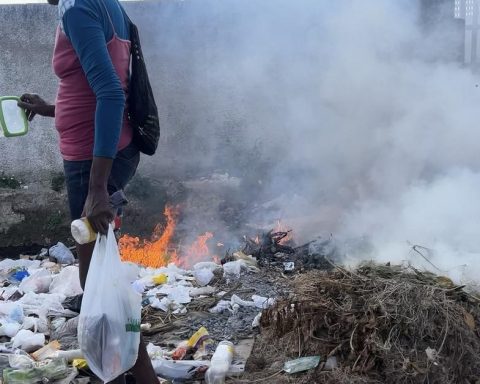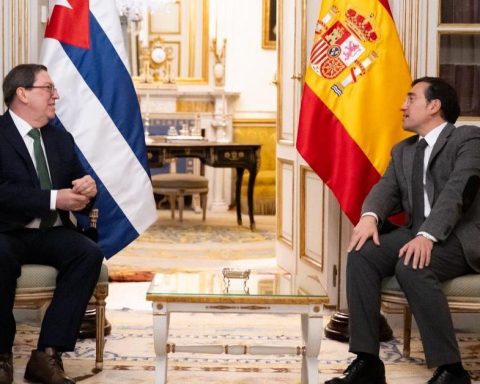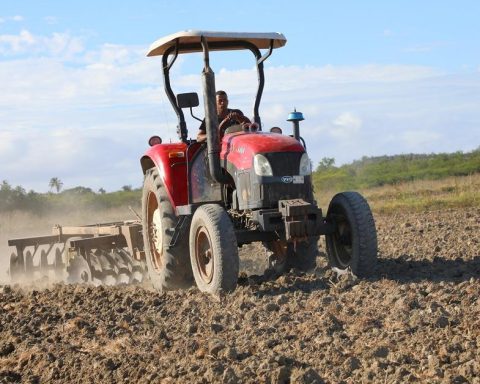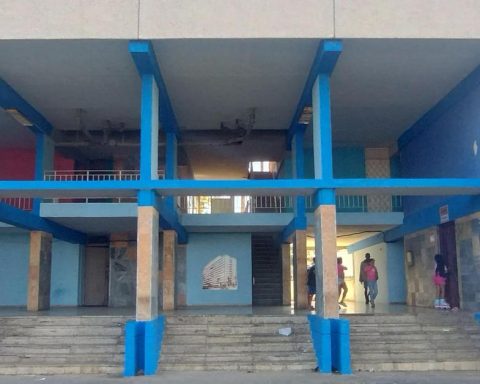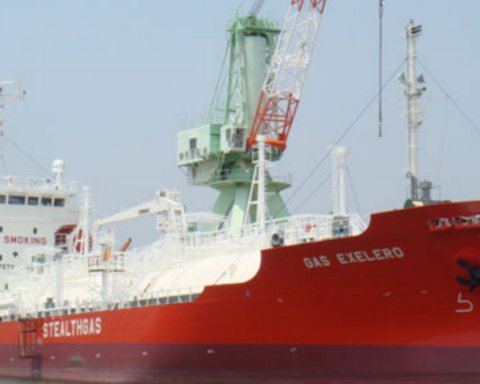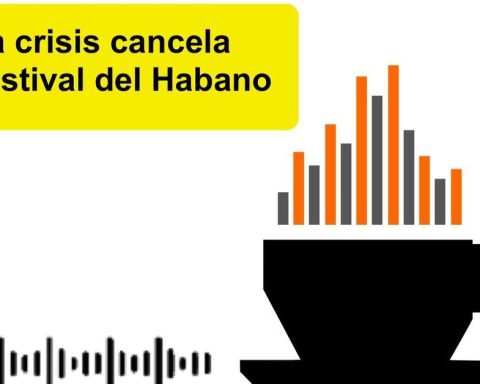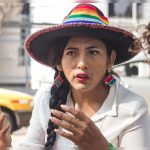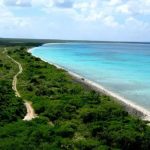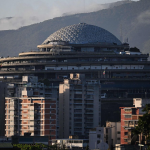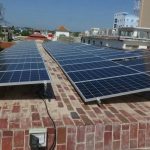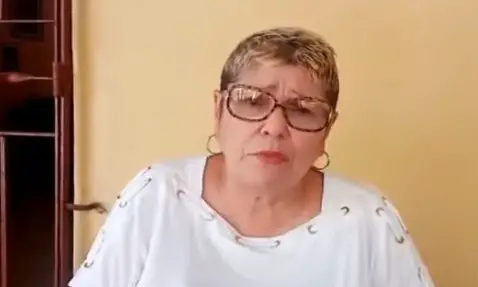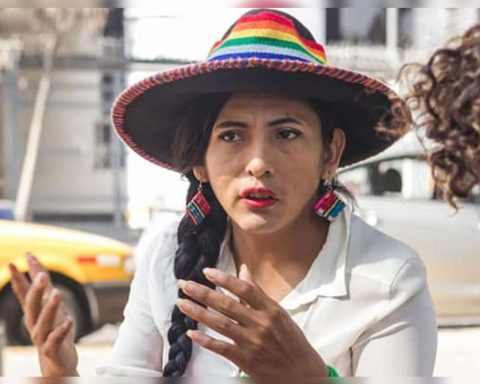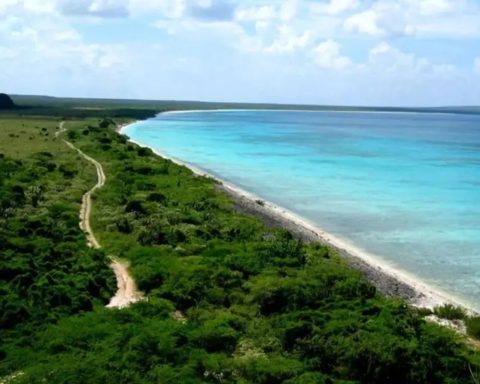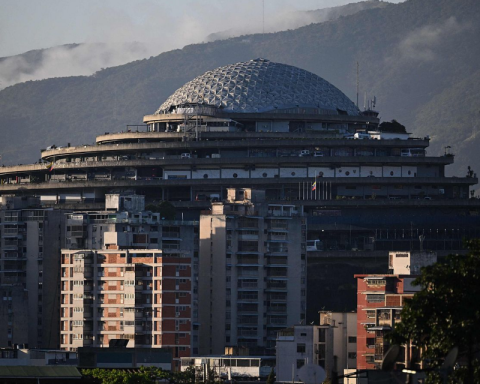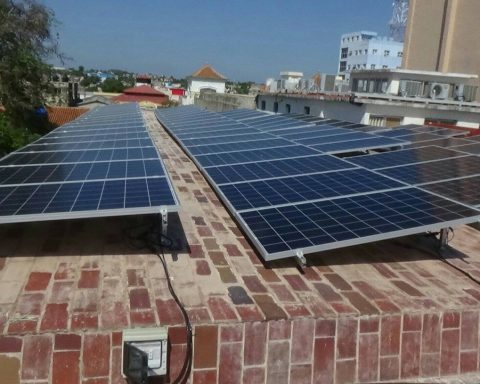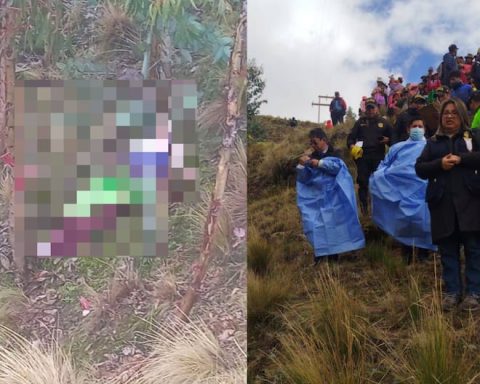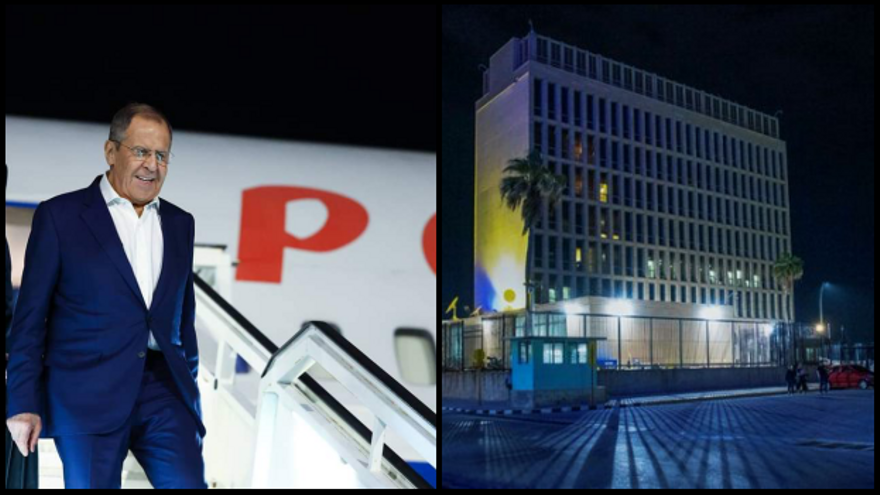
The same night that Miguel Díaz-Canel had just assumed the post of President of the Republic again, the Russian Minister of Foreign Affairs, Sergei Lavrov, landed in Havana and will be the first foreign leader to be received by the president in this legislature. This coincidence, perhaps forced, reflects the current situation of the island’s international relations, with Russia as a priority partner.
It was also the same chosen night by the US embassy in Havana to reiterate its support for Ukraine with blue and yellow lights on the top of its façade, although this was not accidental. “Tonight, the US Embassy in Havana is lit up again in the colors of Ukraine to demonstrate our unwavering support for the Ukrainian people. Russia continues its brutal and illegal war of aggression against Ukraine. We will continue to use the diplomatic and economic tools to our reach to make sure that Russia’s malign influence and brutal aggression are recognized everywhere,” the embassy said on its social media.
“In 1961, the people of Cuba heroically defended their sovereignty and independence, achieving a historic triumph by defeating US imperialism on the sands of Playa Girón”
While the Chancellery Rusa tweeted in her Spanish account: “In 1961, the people of Cuba heroically defended their sovereignty and independence, achieving a historic triumph by defeating US imperialism on the sands of Playa Girón. We congratulate our Cuban friends on this significant date.” .
The visit, according to the official press, will focus on promoting political, economic, educational and cultural cooperation. “Relations between Russia and Cuba are excellent. They have a high priority given by both governments and are based on traditional ties of friendship between the peoples,” the newspaper said. Granma in a note in which he adds that the dialogue between the two nations “at the highest level has been valuable, friendly and aimed at promoting bilateral relations in all fields of mutual interest and benefit.”
Since the arrival of Donald Trump, in 2017, put an end to the thaw with the US and economic opportunities for the Cuban regime dwindled, relations with Moscow have been strengthening. It was seen especially between 2018 and 2020, when in addition to travel –Russian tourism doubled–, in the multiplication of Moscow’s investments on the Island, although many of them were canceled due to an attitude that Russia did not like.
Although in 2020 a collaboration was discontinued railway company due to “economic difficulties and quarantine restrictions on the island”, according to the director of the state railway company of the Eurasian country (RZD), Sergei Pávlov, the statements of other senior officials indicated that the mentality of the Cuban leaders was the great impediment for the investments to come to fruition. Oleg Kucheriáviy, executive secretary of the Russian-Cuban Intergovernmental Trade Commission, had told his country’s television that only 10 of 60 joint projects were being carried out and that the silence and delay of the island’s authorities had a lot to do with it. what to see in it
The invasion of Ukraine has changed everything and reinvigorated relations. On this occasion, the interest of the Cuban side in having a powerful supplier of both energy and investment corresponds to the Russian side, in gaining influence in the Latin American area. With the premise of rallying around it any potential enemy from the West, led by the US, Moscow has once again released the hose.
On this occasion, the interest of the Cuban side in having a powerful supplier of both energy and investment corresponds to the Russian interest in gaining influence in the Latin American area.
The meetings of Boris Titov, president of the Cuba-Russia Business Council and a trusted man of Vladimir Putin, with island authorities in recent months say it all.
Among the best-known results of these meetings are the creation of a JV of food, chemical products and other items for the home with the state company Cimex, the project of a hotel only for Russian clients and the enormous increases in fuel from the Eurasian country to the Island, also the result of the December tour of Díaz-Canel that led him to meet President Putin himself in Moscow.
Titov acknowledged in an interview with Sputnik last March that his team advises the Cuban authorities for an economic reform that goes through give more support to the private sectorand although he considered that there are problems in the mentality of the regime for there to be profound changes (greater business flexibility and tax cuts, among others), many experts warn of the danger of following the steps that the USSR took in its day to become an economy of great oligarchs today. In view of the MSMEs that are multiplying on the islandMoscow’s advice is being reflected, although it is suspected that many of these small and medium-sized businessmen are friends of the regime and benefit from privileges.
Lavrov arrives in Havana after a meeting in Brazil with Luiz Inázio Lula da Silva, who has opted for a “Chinese” policy and proposed a peace plan to put an end to the conflict in Ukraine. His position has been widely criticized by NATO, for putting himself in profile before the invasion of Russian imperialism and, despite this, he was the most critical of Moscow that the chancellor had to face, who, after getting rid of Brasilia, arrived finally to the territory of unconditional friends. Venezuela, Nicaragua and Cuba, much more economically dependent than the South American giant, have supported Russia without fissures since the war began and not only by omission, but by action, something that is reflected from the United Nations voting to the propaganda pro-Russian officer.
In Nicaragua, Lavrov was satisfied with the support of Daniel Ortega, who has recently advocated for its incorporation as an observer country in the Community of Latin American and Caribbean States (Celac) and in the Central American Integration System (Sica).
“All this helps to create in Latin America a powerful center and a pillar in the new world that is being formed,” Lavrov said.
“We discussed many issues of mutual interest, such as economic issues and also cooperation within the framework of the intergovernmental commission,” Lavrov added. These issues range from health to automobiles, fertilizers, food production and transportation, but without a doubt what really matters to the Russian side is diplomacy.
“All this helps to create in Latin America a powerful center and a pillar in the new world that is being formed,” Lavrov said. According to him, Western countries, mainly the United States, “are trying to proliferate their hegemony and influence in conflicts, such as in Ukraine or in the Asia-Pacific region.”
“We, with our Nicaraguan supporters, are going to fight these trends and prevent these acts,” he said.
Russia’s request to join Sica is being processed, as are those of Egypt, the United Arab Emirates and Georgia, but a great division is expected, since countries like Costa Rica and Guatemala oppose it.
________________________
Collaborate with our work:
The team of 14ymedio He is committed to doing serious journalism that reflects the reality of deep Cuba. Thank you for accompanying us on this long road. We invite you to continue supporting us, but this time becoming a member of our newspaper. Together we can continue transforming journalism in Cuba.
